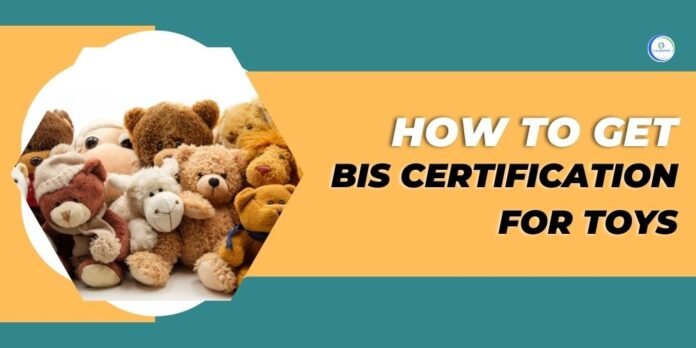Introduction
The Bureau of Indian Standards is the national standards body of India responsible for developing and promoting standardization in the country. BIS certification for toys is a mandatory requirement for manufacturers to ensure the safety and quality of toys sold in India.
The BIS certification covers a wide range of toys including dolls, puzzles, educational toys, stuffed toys, and ride-on toys, among others. The BIS certification is not only important for ensuring the safety of children who play with the toys, but also for providing reassurance to consumers about the quality of the product they are purchasing. The BIS mark serves as a guarantee of the toy’s compliance with Indian standards and its safe use.
Having BIS certification for toys can help manufacturers sell their products more effectively because it helps to demonstrate their commitment to quality and safety. The certification can also be a useful for manufacturers looking to expand their market beyond India, as it provides assurance to buyers in other countries that the toy meets international standards.
Different types of toys required in BIS Certification for Toys
- Electronic Toys – Electronic toys come under the applicable standard IS 15644:2006. The toys have at least one function and are dependent on electricity.
- Non- electronic toys – Non – electronic don’t have any functions and are not dependent on electricity. The toys come under the applicable standard IS 9873 (Part 1):2019.
Different type of BIS standards for toys
- IS 9873 (Part 1-3): This standard covers the general safety requirements for toys, including requirements for design and construction, labeling, and packaging.
- IS 15644: This standard covers the requirements for toys powered by batteries or electricity, including requirements for electrical safety, durability, and performance.
- IS 15645: This standard covers the requirements for ride-on toys, including requirements for stability, stability during use, and overall safety.
- IS 6911 (Part 1-3): This standard covers the requirements for mechanical and physical properties of toys, including requirements for strength, toughness, and resistance to impact and crushing.
- IS 7028: This standard covers the requirements for flammability of toys, including requirements for ignition resistance and flame spread.
- IS 7112: This standard covers the requirements for lead, cadmium, and other toxic substances in toys, including requirements for levels of these substances in the materials used in the manufacture of toys.
Documents Required for BIS certification for Toys
The following are the documents required for BIS certificate registration for toys:
- Application form
- Detailed technical specifications for the toy
- Test reports of the toy should be from a BIS-accredited laboratory.
- Manufacturing process description
- Product samples
- Company registration documents
- Incorporation certificate
- memorandum and articles of association
- Copy of PAN card.
- Declaration of conformity
Process of getting the BIS certification for Toys
The following are steps of getting BIS Certification Online for Toys-
- The first step is to submit an application for certification to the BIS including design, materials, and manufacturing processes of toys.
- The next step is to have a test report of the toys to ensure that it meets the requirements of the relevant BIS standards.
- After the testing is complete, an inspector from the BIS will visit the manufacturer’s facility to verify that the toy is being manufactured in accordance with the relevant BIS standards.
- The inspector will evaluate the results of the testing and inspection.
- Once certification has been granted, the manufacturer can use the BIS certification mark on their toy products to demonstrate compliance with the Indian standards.
Fee Structure of BIS Certification
The cost of BIS certification for toys in India can vary depending on several factors, such as the type of toy, the size of the manufacturer, the volume of production, and the complexity of the certification process. The fees for BIS certification are set by the Bureau of Indian Standards (BIS) and are designed to cover the costs of processing the application, testing the toy, conducting the on-site inspection, evaluating the results, and maintaining the certification.
Typically, the fees for BIS certification for toys can include:
- Application fee
- Testing fee
- Inspection fee
- Evaluation fee
- Certification fee
Benefits of BIS certification for toys
There are several benefits of obtaining BIS certification for toys in India, including:
- Enhanced safety: BIS certification provides assurance to consumers that the toys they purchase meet the highest standards of safety, as determined by the Bureau of Indian Standards (BIS). This can help to reduce the risk of injury to children and improve overall safety for the users of toys.
- Increased credibility: By obtaining BIS certification, manufacturers can demonstrate their commitment to quality and safety, which can enhance their credibility and reputation in the marketplace.
- Improved competitiveness: BIS certification provides a competitive advantage by demonstrating that a manufacturer’s toys meet the highest standards of quality and safety. This can help manufacturers to stand out in a crowded marketplace and increase their chances of success.
- Access to international markets: BIS certification is recognized internationally, which can help manufacturers of certified toys to access new markets and expand their reach.
- Compliance with regulations: By obtaining BIS certification, manufacturers can demonstrate compliance with Indian regulations and standards, which can help to reduce the risk of legal action or fines.
Conclusion
In conclusion, BIS certification is a crucial aspect of the toy industry in India. It ensures the safety and quality of toys sold in the country and provides reassurance to consumers about the products they are purchasing. However, the benefits of obtaining BIS certification are significant, including enhanced safety, increased credibility, improved competitiveness, access to international markets, and compliance with regulations.





